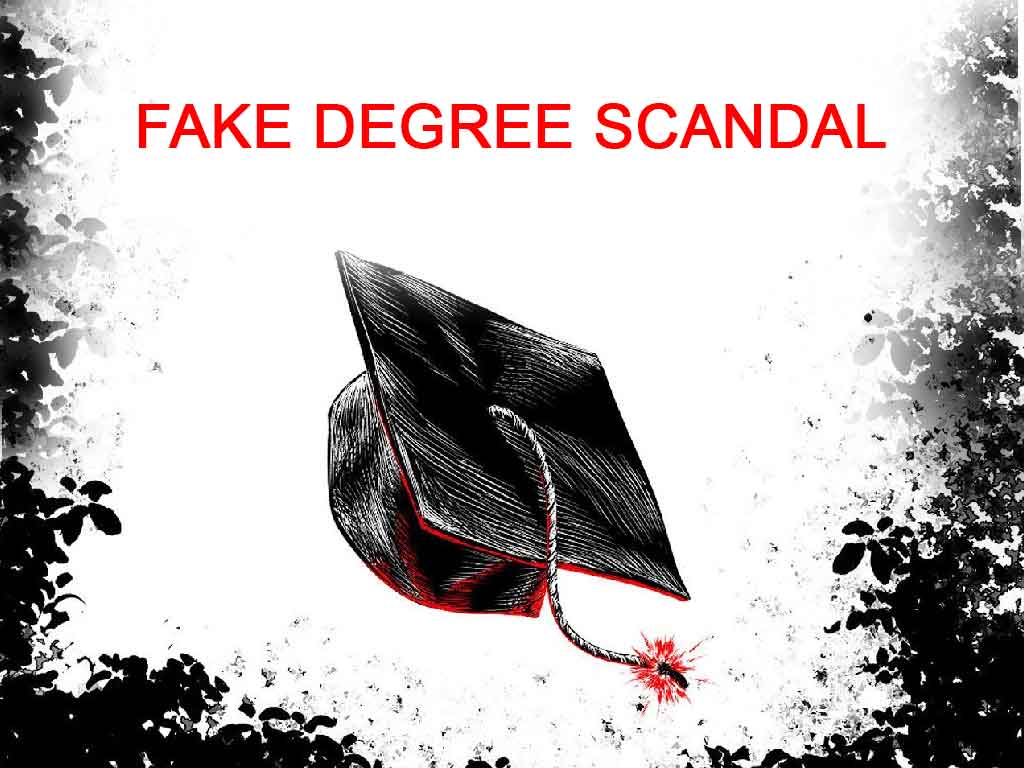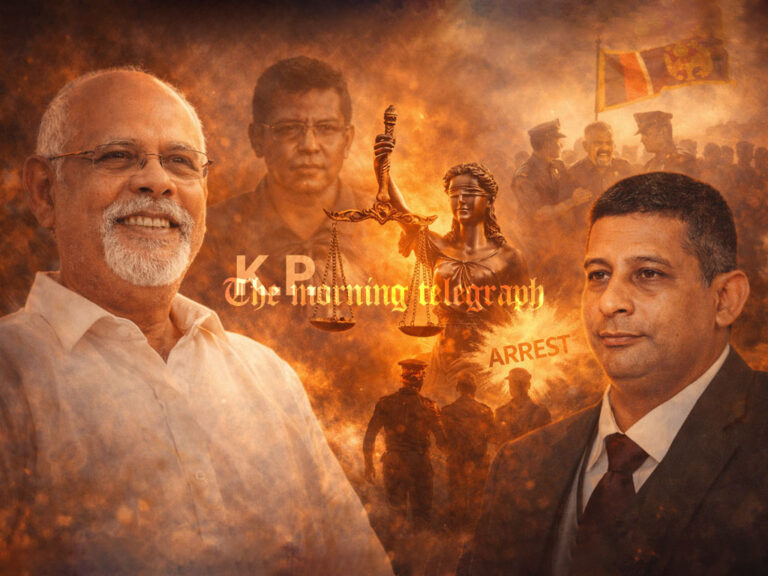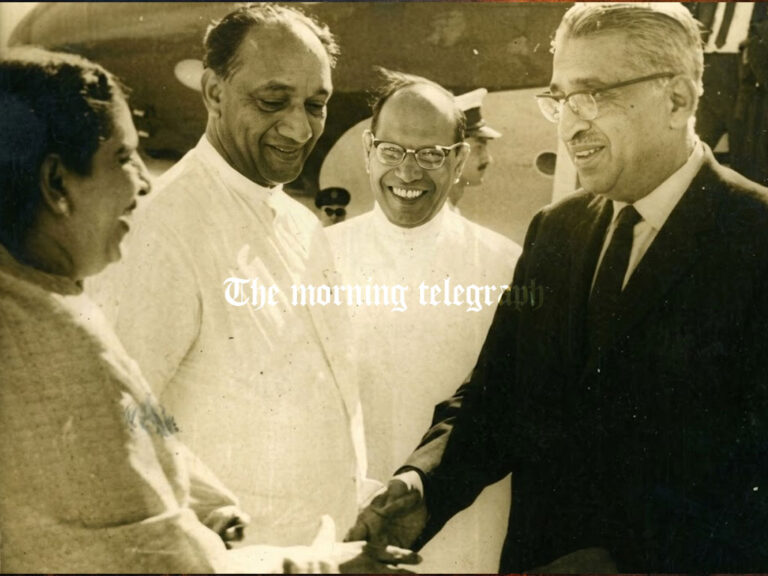
The controversy surrounding the educational qualifications of the Speaker and several ministers has severely undermined the government’s moral high ground, less than a month after coming to power. While the resignation of the Speaker is only the beginning, there are many others on the list who are suspected of having presented fake educational qualifications. This scandal threatens to destabilize the government’s credibility, as many citizens question the integrity of those in power.
In Sri Lanka, there is no requirement for specific educational qualifications, other than a degree, for a public representative or Member of Parliament (MP). This is a common practice in most countries, except in a few like Pakistan. However, during recent elections, candidates started selling their educational qualifications to secure preferential votes, especially through the preferential voting system. This trend became more prominent with the rise of the ‘Viyathmaga Group,’ which leveraged educational qualifications as a central part of its election campaign in the 2020 general elections. The campaign turned education into a key vote-grabbing mechanism, effectively marketing academic credentials as symbols of competence.
The National People’s Power (NPP), particularly the Janatha Vimukthi Peramuna (JVP), saw this as an opportunity to present themselves as the intellectual alternative to other political parties. Following the 2022 struggle, the JVP began branding themselves as the party of educated and intelligent individuals. Compared to their political rivals, the JVP had a relatively high number of graduates, and they sought to exploit this to appeal to the electorate. They opened their platform to doctorate holders, professors, doctors, and engineers, hoping to present themselves as a party with superior intellectual resources. This, in turn, led to a campaign where educational qualifications were flaunted on posters, advertisements, and public speeches.
One such case involved Ashoka Ranwala Biyagama, a JVP organizer and trade union leader who had previously been involved in the anti-SAITM movement. Ranwala was presented as ‘Professor Ashoka,’ even though he was not widely known outside of political circles. His title helped him gain popularity in Gampaha, where voters, influenced by his professorial title, perceived him as an expert in chemistry, particularly because of his involvement in producing organic fertilizer during Gotabaya Rajapaksa’s controversial organic farming initiative. Despite his lack of real recognition, the title helped secure his political standing.
Another controversial figure is Anura Karunathilaka, a prominent JVP member who, for years, presented himself as ‘Dr. Anura’ in media. However, a review of university records reveals that Karunathilaka does not hold a Master of Philosophy degree, which he had claimed. Despite this, he continued to use the title ‘Dr.’ in his political campaign, even after his appointment as the Minister of Urban Development, where he was promoted as ‘Professor Anura.’ His qualifications, however, never matched the academic titles he claimed, highlighting the growing trend of politicians inflating their academic credentials to gain public trust.
Similarly, Energy Minister Kumara Jayakody’s educational background has come under scrutiny. Although Jayakody registered for a Bachelor of Science degree, he claims not to have completed it. Nonetheless, he has been labeled an engineer to meet the rising expectations for politicians with academic qualifications. Another politician, Dr. Rizvi Salley, claimed to be a medical specialist, but his expertise in circumcision was limited to specific communities in Colombo. Despite his lack of specialized training, his campaign portrayed him as a medical expert, misleading voters into believing he had a broader medical qualification.
These cases are not isolated but part of a much larger pattern where politicians have used fake or inflated academic credentials to win political support. The issue is particularly pronounced within the JVP, which, paradoxically, had once undermined the importance of formal education. Historically, figures like Rohana Wijeweera, the founder of the JVP, rejected the idea that a degree should be central to a political career, emphasizing ideological commitment over formal education. This view was largely shared by many of the party’s members, such as Bimal Ratnayake, who chose politics over formal education and never regarded a degree as essential.
However, the political landscape began to change post-2020, when educational qualifications became a major selling point in electoral campaigns. This shift was especially evident in the way the JVP marketed itself, using academic degrees as a way to project an image of competence. The party relentlessly criticized the educational qualifications of its political opponents, launching public attacks on figures like Chamara Sampath, despite the fact that Sampath never claimed to have a degree. The JVP’s aggressive focus on educational credentials became a double-edged sword, as their own politicians were now implicated in the very same issue.
One of the most glaring examples of this contradiction is Kosala Nuwan Jayaweera, a former president of the Open University’s Great Students’ Union and current Member of Parliament for Kegalle. Jayaweera ran his election campaign under the name ‘Engineer Kosala Nuwan Jayaweera,’ despite his educational qualification being listed as a diploma, and his professional qualification as ‘Assistant Engineer.’ This misrepresentation further fueled public outrage, as voters were unknowingly misled by his inflated title.
The practice of politicians flaunting fake or exaggerated academic qualifications has now become a major issue in Sri Lanka’s political landscape. While many voters are more concerned with the integrity of their leaders than their academic credentials, the issue of fake degrees has led to a significant erosion of trust in the government. Rajith Keerthi Tennakoon, a prominent civil society activist, argues that the current crisis is irreparable and has permanently damaged the public’s faith in their leaders. The scandal over fake degrees is not just a national issue but has international implications as well, as politicians’ biographical data is increasingly scrutinized by foreign governments and international organizations.
The JVP’s growing political power and its association with intellectualism now stands in stark contrast to its earlier rejection of academic elitism. The party’s leaders are now faced with the difficult task of addressing the public’s growing disillusionment with their educational qualifications. The current crisis highlights the dangers of politicians using academic credentials as a tool for political gain, leading to a situation where the integrity of the political system is called into question.
The scandal over fake degrees is not something that can be easily solved by the resignation of the Speaker alone. It is part of a broader identity crisis within the political landscape, where the emphasis on academic qualifications has created a false narrative of competence. The JVP’s focus on intellectuals in their election campaigns, combined with their own involvement in the fake degree scandal, has left the party in a precarious position. It remains to be seen how they will navigate this issue and regain the trust of the people.
In the long run, the fake degree crisis may become a defining moment in Sri Lankan politics, much like the ‘bond deal’ scandal in 2015 that crippled the previous government. As voters become increasingly aware of the dishonest use of academic qualifications, the government and political parties may struggle to maintain their legitimacy in the eyes of the public. The damage done by the fake degree scandal may be irreversible, leaving a lasting scar on the political system.




